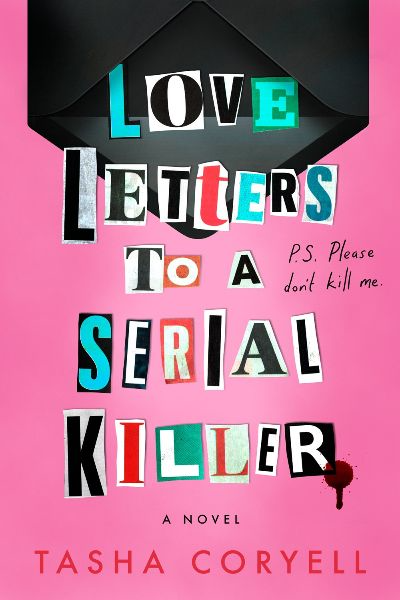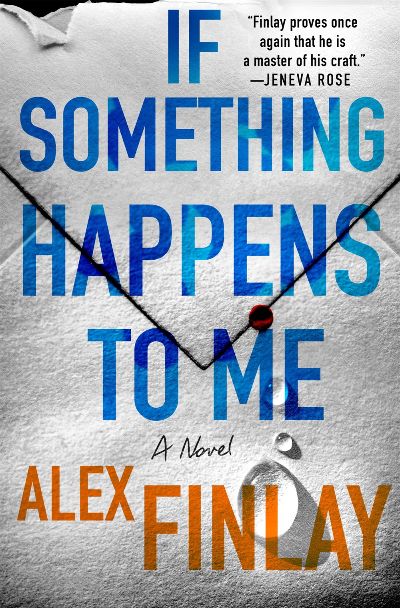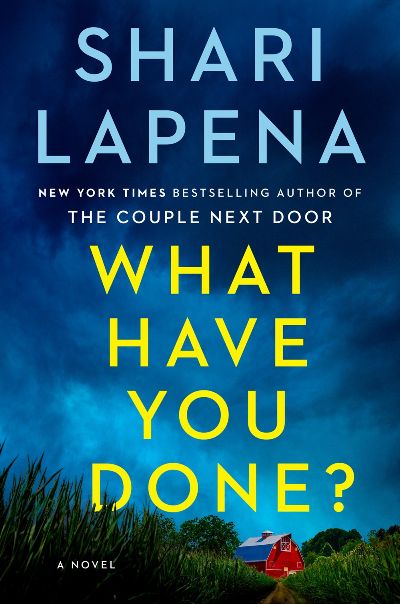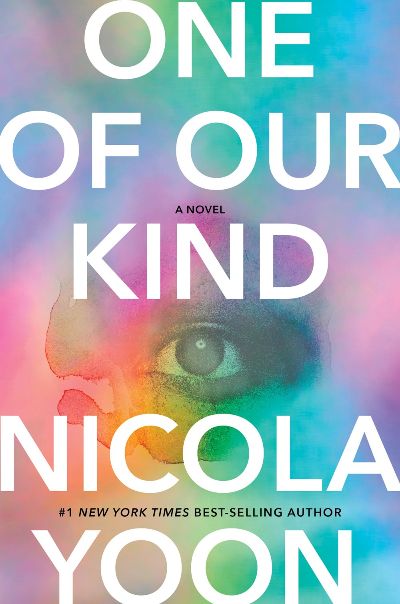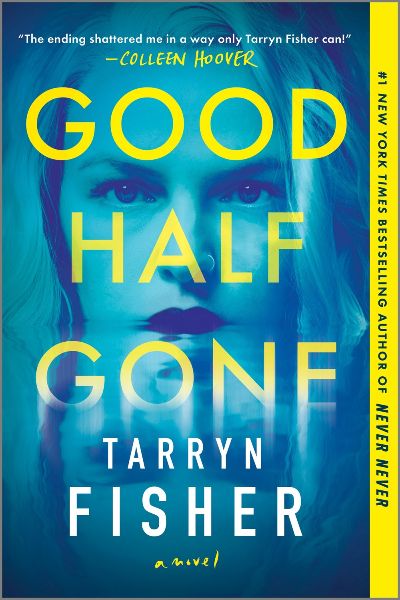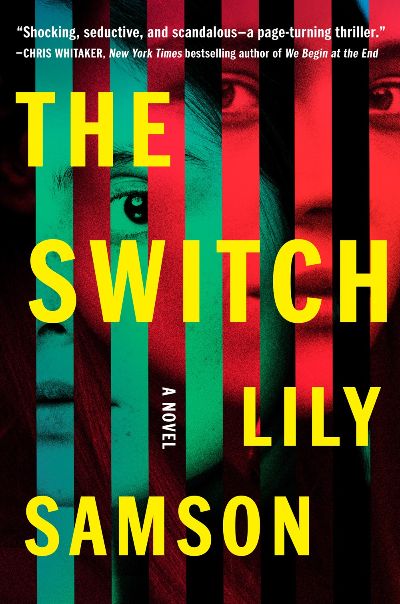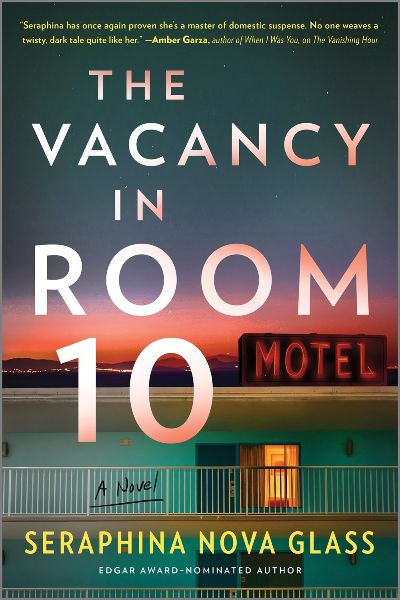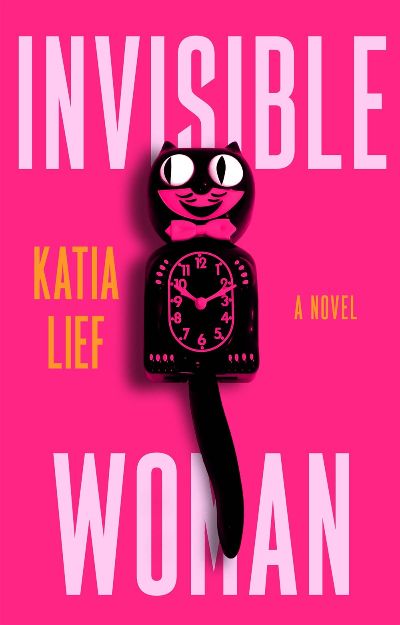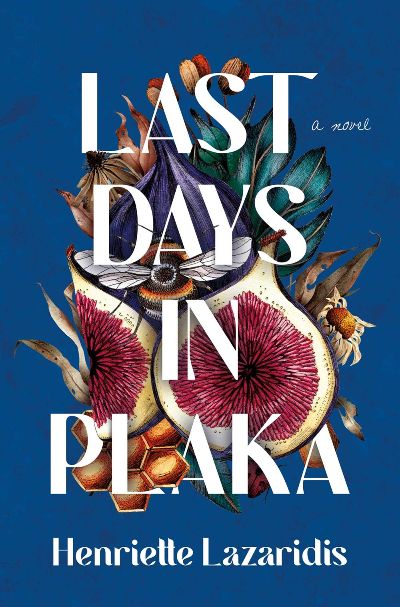Deeply disturbing pals up with darkly comic to create one heck of a morbid ride. Thirty-something Hannah is a little lost. Her work in a non-profit in Minneapolis is as meaningless as her occasional hook-ups with self-centered guys who only want one thing. The light of her life? True crime, specifically the unfolding story of a murderer in Atlanta who has killed four women and is quickly identified as William, a good-looking lawyer. From combing the true-crime forums by night and the news articles by day, Hannah’s interest in William blossoms until she takes the next step: she writes to him. Thus begins a correspondence that works its way from hatred to love, as all the while her life crumbles around her. By the time the trial is announced, Hannah has nothing to stop her from driving to Georgia, spending weeks observing the proceedings, and hanging out with the other true-crime weirdos (too judgy? I don’t think so). But as in all good crime books, nothing is as it seems, and the truth sends Hannah—and the reader—spinning in a completely surprising direction.
Psychological
A trip to lover’s lane ruins lives in Finlay’s latest thriller. Ryan Richardson was with his girlfriend, Ali, when they were attacked. He receives a blow to the head and is thrown out of the car while Ali screams and vanishes along with the vehicle. Five years later, Ryan has changed his name to escape the constant pressure of suspicion in Ali’s death. Abroad, attending law school, he learns that the car has been found in a lake, and inside were two dead men and an envelope with the words, “If something happens to me” written on it. Inside are a series of numbers. Is it a code to reveal the truth about that night? Ryan seeks closure, but trying to get the answers he seeks ends could put him in the crosshairs of a killer. The twists are nonstop, and the story falls into surprising territory. Finlay’s name on the cover guarantees a great read, and this one will end up on many best-of-the-year lists.
Lapena’s psychological thrillers never disappoint. In her latest, set in Fairhill, Vermont, a farmer investigating vultures over his field finds the dead body of a young woman. This kind of thing never happens in Fairhill, and when the horrified local police realize that the victim is a local teen, Diana Brewer, the town reels in shock and grief. “Trying to make sense of something that will never, ever make sense” are Diana’s bereft single mother, who worries others by telling them she still communicates with her daughter, and the young woman’s best friends, Riley and Kelly, who are determined to find the killer. But even in a small town, it’s not easy to figure out who could have done this awful thing, and readers will enjoy sleuthing along with the characters as suspects emerge, each with something dark to hide. Supernatural elements enter in several ways here, adding to the edginess and puzzlement. If you like Chris Bohjalian, this one’s for you, not just because of the Vermont setting but also the small-town drama.
In many ways, Kingston and Jasmyne Williams are living their dream life. Their little boy, Kamau, is thriving. They have another baby on the way. And Kingston, or King, is making oodles of money in finance. But King is eager for a next step: moving them to Liberty, a controversial suburban Los Angeles community of very, very rich Black people that comes with all the trappings. A sumptuous spa—sorry, wellness center. Lavish homes with three living rooms each (one for everyday, one for company, and a den, of course). And an excellent school for Kamau where every teacher is Black and they won’t have to worry about him fitting in. From the moment she reluctantly agrees to this transformation of their lives, Jasmyn is nervous about abandoning her community and her belief in giving other Black people a hand up. And she’s right: Liberty turns out to be one sinister place, in ways readers will never guess and that will keep them on edge right up to the last gasp of surprise. Yoon’s first adult novel has some of the hallmarks of her YA background: a character who feels like it’s her against the world, a shifting sense of who can be trusted, and a feeling of not fitting in. This will be a great crossunder read for young adults as well as a hit with fans of Zakiya Dalila Harris’s The Other Black Girl.
For me, the best kind of thriller is one with high emotional stakes, and this fits the bill, featuring a family that’s been torn apart by addiction and an unsolved crime. When they were 15, Iris and her twin sister, Piper, were tricked into meeting older boys, a tryst at which Piper was abducted. The police believed that Piper ran away, the trail went cold, and today lris is a bereft adult, living with her son and grandmother and still wondering what happened to her sister. The twins’ mother, an addict, gave up on finding Piper long ago. But, clinging to hope, Iris has landed an internship at Shoal Island Hospital, a facility in Seattle’s San Juan Islands whose sign has a space where the words “…for the Criminally Insane” used to be. Readers are gradually let in on who she’s there to meet, and along the way, flashbacks return to the time of the abduction as Iris sleuths and grieves in the present day. A closing twist adds fear and drama, but those are present in spades along the way too. This fast read will be a hit with those who enjoy a female-led thriller that features an at-first-powerless protagonist who must seize the reins.
Sexy and perverse, deceitful and disturbing, this is one domestic thriller that doesn’t hold back. Elena and Adam are house sitting in South London when they come across the beautiful painter Sophia and her equally handsome husband, Finn. Sophia and Finn are suave and sophisticated, and dinner with the four soon evolves into casual meetings between the two women, and eventually friendship. Despite this, Elena can’t stop herself from becoming obsessed with Finn—sex with Adam leaves a lot to be desired—and Sophia recognizes Elena’s infatuation. But instead of being threatened, Sophia has a plan. Why don’t they exchange partners, with the men never the wiser? The women, physically very similar, will switch places during the night, when the men are asleep, making every possible effort—from hair to perfume—to trick their partners. Plausible? Barely. (Pro-tip: use blackout curtains). But while “switching” increases Elena’s fervor for Finn, for Sophia it opens up a whole world, one that she has been planning for ages. A fast and effortless read that never stops surprising.
This sequel to the Northern Ireland-set Northern Spy (2021), in which Tessa Daly desperately searches for her sister, Marion, who has either been kidnapped by the IRA to work for them or is actually a terrorist, finds Tessa hiding in Dublin from the terrorists who want revenge. She’s enjoying a quiet, if lonely, life with her four-year-old son when she’s kidnapped by a gang that includes a childhood friend. He’s now in the IRA and wants Tessa’s help to turn an MI5 agent toward the Republican side. That starts a terrifying ordeal for Tessa, who walks a tightrope between British officialdom and homegrown extremists while keeping her son safe and pursuing a forbidden romance. As in the previous book, Berry portrays a modern Ireland that’s a maelstrom of contradictions, grief for the past and hope for the future, and fear that the country’s core can never really change. But there’s still hope for the Daly family, whose caring and exasperation toward one another makes this local drama into a universal fable of love overcoming all.
The Sycamores, the brilliant setting for this tale of two young women, is a run-down motel, converted into apartments, on the edge of Santa Fe. The residents—whose lives spill out throughout the building, from the balconies to the pool—are a fascinating lot who love nothing more than getting into one another’s business. Broke and thrown out of her ritzy home by her partner, who technically owned everything, Cass ends up the Sycamores’ handyperson, unclogging toilets in exchange for rent. Throw in a side gig slipping married men roofies, photographing them near naked, then threatening blackmail, and Cass has just enough money to get by. Until she accidentally murders very much the wrong guy. Alicia’s route to the Sycamores is more convoluted. Her painter/husband rented one of the units as his studio, but one day—with no real warning—he calls her up, confesses to a murder, then shoots himself. Alicia moves into her husband’s studio to cozy up to the other residents and try to discover the truth behind her husband’s death. This thumbnail sketch only hints at the depth and complexity of this thriller, in which both women take enormous risks, with help from the neighbors, to learn the truth about the lives they’ve lost. Recommended for readers who like a strong, sophisticated thriller with a dynamic plot and unforgettable characters.
A filmmaker whose heyday is past, Joni Ackerman has grown used to living in the shadow of her successful TV-show creating husband, Paul, as well as accustomed to the idea that she can’t make material for the small screen herself because that’s his territory. She drinks too much and is overall unhappy, with small bursts of joy when her daughter Alex returns home and life seems complete (there’s a twist-and-a-half in store there). She often thinks of her broke, early days living with roommate Val in Los Angeles, when they attended a party full of Hollywood glitterati at which Val was raped by a celebrity. Neither told anyone and both tried to move on, growing apart in the process. But now the past is back as the rapist has been outed and whispers abound about a mysterious second man he works with. What follows is a psychologically savvy look at the many victims and the long life of sexual assault, as well as a satisfying tale of coping through taking action. Joni is a lovably flawed but determined character and her decisions and determination will keep readers rooting for her and racing through this fast and absorbing drama.
Lazaridis’s previous work, Terra Nova (Pegasus, 2022), alternated between men trekking to the South Pole and the fight by one of their wives back home to win attention for suffragists. On the surface, this title is very different, taking place in “violently hot” Athens, Greece, where a young Astoria, New York woman is shyly finding her feet in her parents’ homeland. But she’s an explorer in her own way, and an intrepid one, “[uncoiling] the spring of opportunity” that her parents created for her and traipsing toward the traditional center of Greek life: the church. Anna’s parea—her friend group—won’t understand her need to find God, she tells herself; she also (correctly) surmises that they’ll be puzzled by her new choice of friend: an 82-year-old woman whom she meets when Father Emmanouil gives her fresh figs to bring to the woman’s home. As Anna gears up to…well, commit a crime, but one that has a kind motive, readers are immersed in her longing to find out who she really is, where she belongs, and whether she will ever find her way home. What Lazaridis calls her “strange little novel” is a wonderful mix of coming of age, immigrant stories, and the pain that lurks behind crumbling facades.

